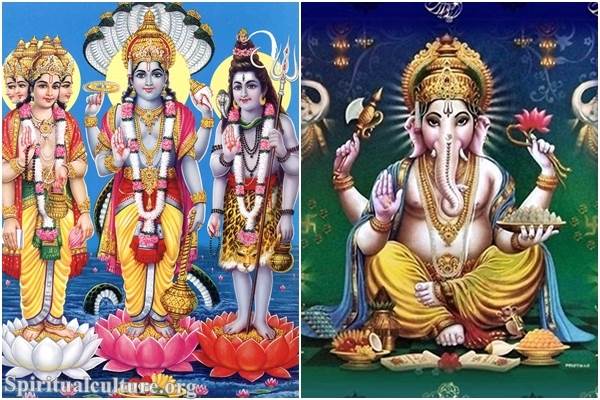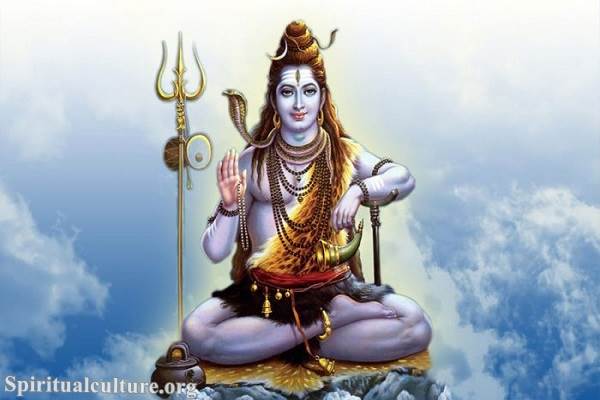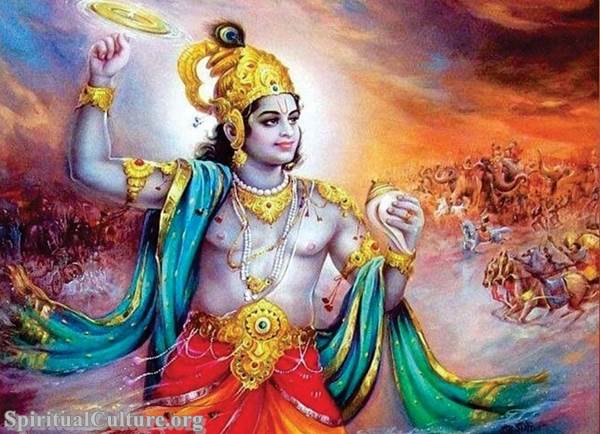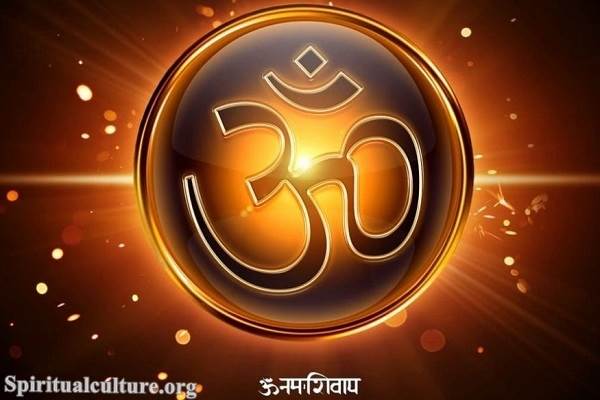These deities are typically believed to be incarnations or aspects of the divine and are revered and worshipped in temples, homes, and other sacred spaces.
Some of the most commonly worshipped deities in Hinduism include:
Brahma in Hinduism: The Creator God
Brahma is one of the three primary deities in Hinduism, along with Vishnu and Shiva. Brahma is the creator of the universe and is often depicted with four faces, representing the four Vedas, the sacred texts of Hinduism.
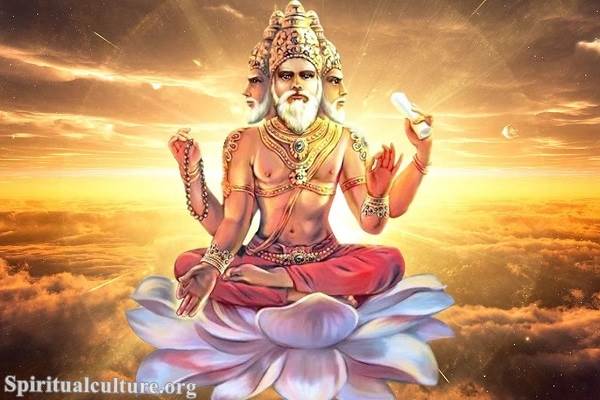
Brahma is also associated with the creation of life and is considered the most learned of all the gods. In some Hindu traditions, Brahma is considered the supreme being, while in others, he is seen as one aspect of the ultimate reality.
Brahma is often depicted holding a scepter and a book, symbolizing his knowledge and wisdom.
Despite being an important deity in Hinduism, Brahma is not widely worshipped, with many temples and shrines dedicated to him found primarily in the western and southern parts of India.
Vishnu in Hinduism: The Preserver God
Vishnu is one of the principal deities in Hinduism and is considered the supreme being in Vaishnavism, one of the major traditions within Hinduism. Vishnu is known as the preserver and protector of the universe and is revered for his ability to restore balance and order when disrupted.
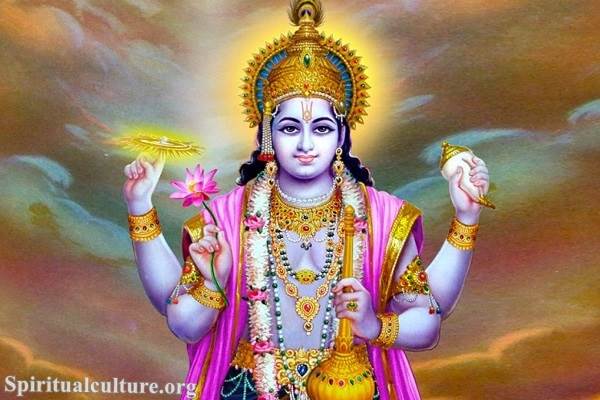
In Hindu mythology, Vishnu is depicted as having taken on various incarnations (avatars) to restore balance to the world. Some of his most famous incarnations include Rama, the hero of the epic Ramayana, and Krishna, the central figure in the epic Mahabharata.
Vishnu is often depicted as a dark-skinned man with four arms, holding a conch shell, discus, club, and lotus flower. He is usually shown wearing a crown, earrings, and a garland of flowers and is often depicted with his consort, Lakshmi, the goddess of wealth and prosperity.
Vishnu is worshipped by millions of Hindus worldwide and is considered a benevolent and loving deity who is always ready to help those who seek his protection. He is also associated with the concept of dharma, or righteousness, and is revered for his role in upholding the moral order of the universe.
Shiva in Hinduism: The Destroyer God
Shiva is a major deity in Hinduism and is considered to be one of the Trimurti, along with Brahma and Vishnu. Shiva is often depicted as a yogi and is associated with asceticism and spiritual enlightenment. He is also known as the destroyer and is believed responsible for the universe’s destruction at the end of each cosmic cycle to pave the way for creating a new universe.
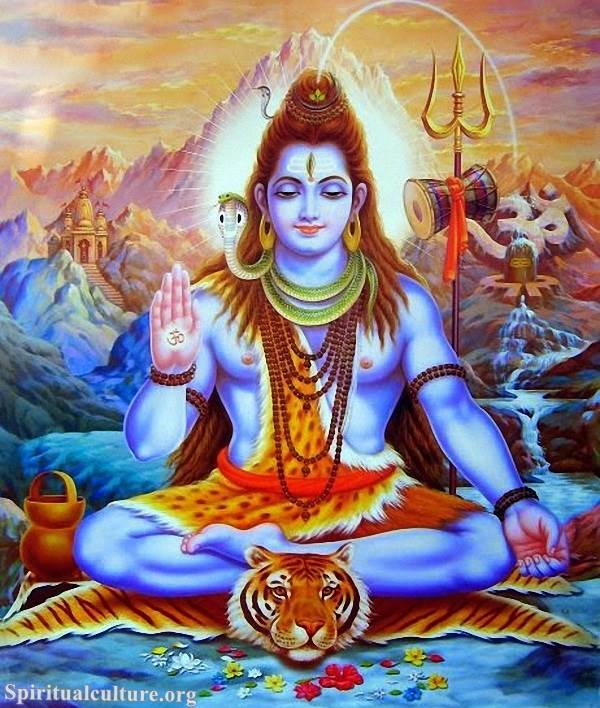
In Hindu mythology, Shiva is married to the goddess Parvati, and they have two sons, Ganesha and Kartikeya. Shiva is also associated with several other deities, including Nandi, the bull, and Bhringi, a devotee of Shiva who has no legs.
Shiva is widely revered by Hindus and is considered to be one of the most important deities in the pantheon. He is often depicted with a third eye, a crescent moon on his head, and a trident in his hand. In Hinduism, Shiva is seen as a symbol of destruction and renewal and is revered as a deity of both destruction and creation.
Ganesha in Hinduism: The elephant-headed God of wisdom and prosperity
Ganesha, also known as Ganapati and Vinayaka, is a popular Hindu deity. He is the son of Shiva and Parvati and is revered as the remover of obstacles and the patron of arts and sciences. Ganesha is depicted with the head of an elephant and a human body. He is often depicted with four arms, a noose, a goad (a sharp instrument used for prodding animals), a bowl of sweets, and a broken tusk.
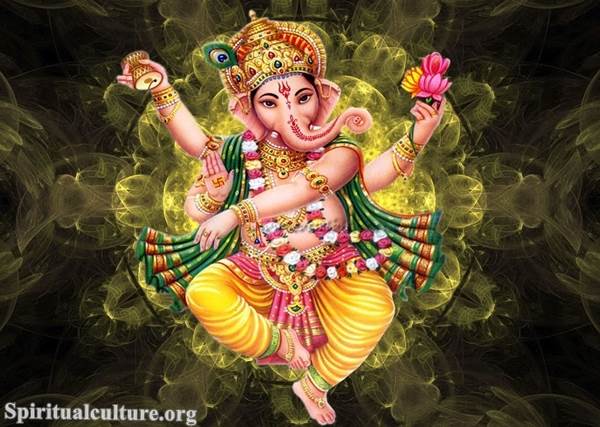
Ganesha is worshipped in Hindu households and temples as the deity who brings good luck and blessings. He is also revered as the god of wisdom and knowledge and is invoked at the beginning of any new venture or undertaking to ensure its success. Ganesha is also considered a protector and is often worshipped for this purpose.
Ganesha is an important deity in Hinduism and is widely revered throughout India and Nepal. He is also worshipped by Hindus living in other parts of the world. Ganesha festivals, such as Ganesh Chaturthi, are widely celebrated in Hindu communities.
Lakshmi in Hinduism: The goddess of wealth and good fortune
In Hinduism, Lakshmi is the goddess of wealth, prosperity, and good fortune. She is the consort of the god Vishnu and is often depicted as a beautiful woman holding a lotus flower, symbolizing prosperity and beauty.
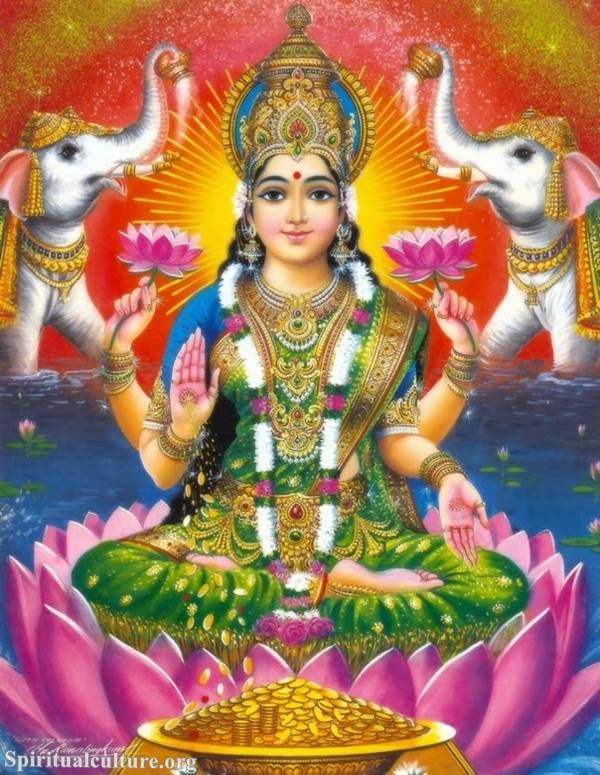
Lakshmi is also associated with the Hindu festival of Diwali, which is celebrated as the festival of lights and is a time of great joy and celebration.
In Hindu tradition, Lakshmi is believed to bring good fortune to those who honor and worship her. She is often invoked in prayers and rituals to bring wealth and prosperity to individuals, families, and communities.
Durga in Hinduism: The warrior goddess
Durga is a Hindu goddess who is a warrior goddess and is revered for her power and strength. She is known for her ability to defeat demons and evil forces and is often depicted riding a lion or a tiger.
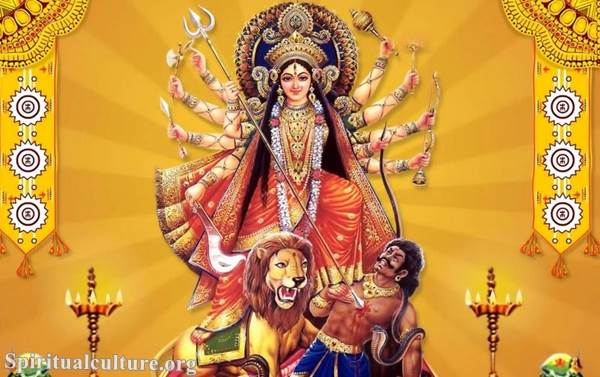
Durga is associated with the Hindu festival Navaratri; a nine-night festival celebrated in honor of the goddess. During the festival, Durga is worshiped through puja (rituals) and offerings, and her story is told through the performance of plays and dances.
Durga is also known by many other names, including Kali, Amba, and Parvati. In Hindu mythology, she is the wife of the god Shiva and the mother of the elephant-headed god Ganesha.
Hindus may also worship other deities, such as Rama and Krishna, including regional and local gods, goddesses, and avatars (incarnations) of the divine. In addition to worshipping deities, many Hindus also follow a guru or spiritual teacher and engage in spiritual practices such as meditation and yoga to achieve a state of enlightenment.
